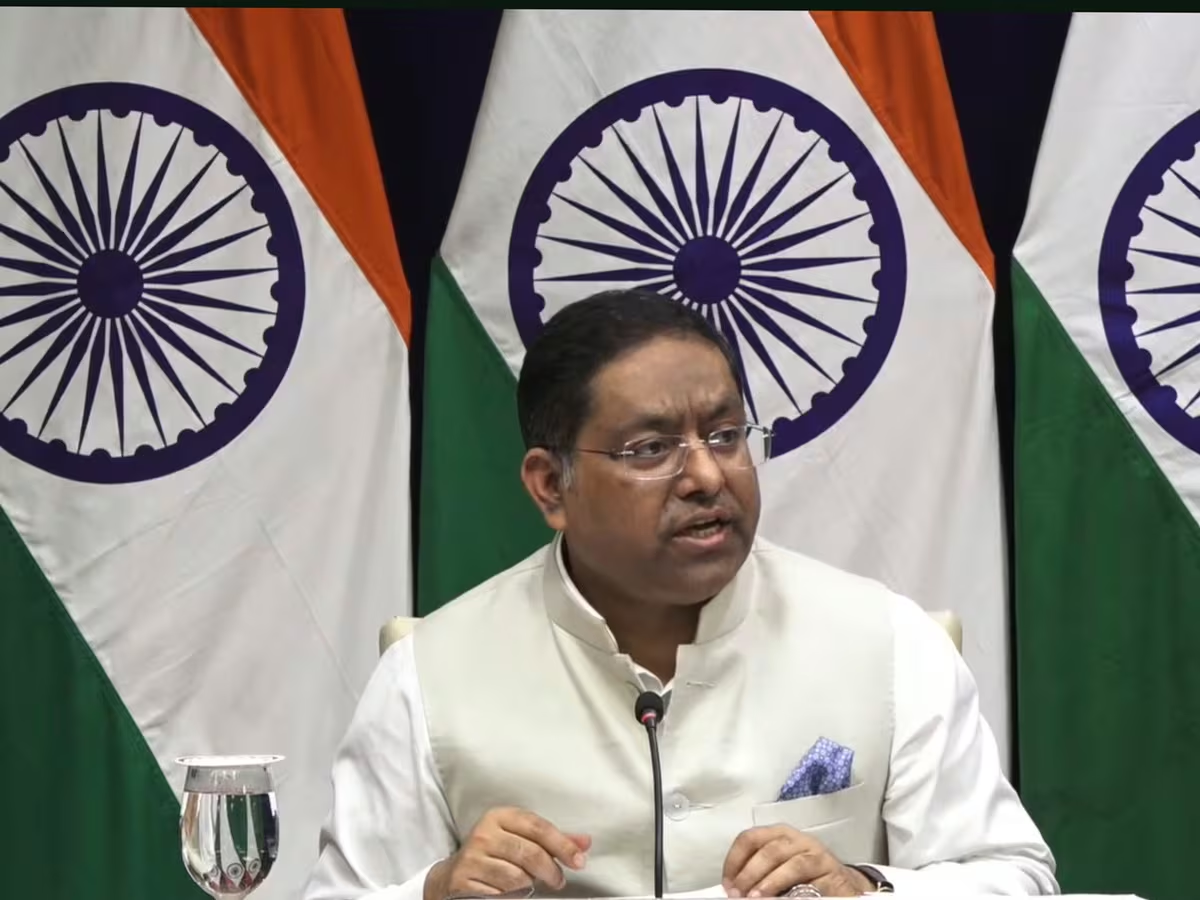
India Asserts its rising global stature with a bold and principled foreign policy, as highlighted in the June 26, 2025, weekly media briefing by the Ministry of External Affairs (MEA). From taking a firm stand against terrorism at the SCO Defence Ministers’ meeting to the resounding success of Operation Sindhu—a major humanitarian evacuation mission—India demonstrated a perfect blend of strategic strength and diplomatic agility. The recalibration of ties with Canada, deepening collaboration with the United States, and nuanced outreach to neighbouring countries further underscored New Delhi’s commitment to regional stability and global leadership.
A Principled Stand: India’s Unwavering Position on Terrorism Derails SCO Joint Statement
One of the most significant revelations from the briefing was the collapse of the SCO Defence Ministers’ meeting’s joint statement. Shri Jaiswal confirmed that the consensus document could not be adopted due to a fundamental disagreement, with India taking a firm and uncompromising stand on the inclusion of strong language against terrorism.
The Core of the Disagreement: Why the Consensus Broke Down
The MEA Spokesperson explained that while the meeting, attended by India’s Defence Minister (Raksha Mantri) Shri Rajnath Singh, was productive, it hit a roadblock on the final communiqué. “On our side, India wanted concerns on terrorism reflected in the document, which was not acceptable to one particular country, and therefore the statement was not adopted,” Shri Jaiswal stated.
This refusal to compromise highlights a pivotal element of India’s contemporary foreign policy: the non-negotiable priority of combating terrorism in all its forms. For India, a statement on regional security that dilutes or sidesteps the critical issue of cross-border terrorism is unacceptable. While the spokesperson did not name the dissenting nation, the context strongly points towards China, which has historically been seen as shielding Pakistan from international scrutiny on this issue. By holding its ground, India sent a powerful message that it will not sacrifice its core security concerns for the sake of bloc unanimity, especially when that unanimity comes at the cost of ignoring state-sponsored terror.
Raksha Mantri Rajnath Singh’s Powerful Address to the SCO Conclave
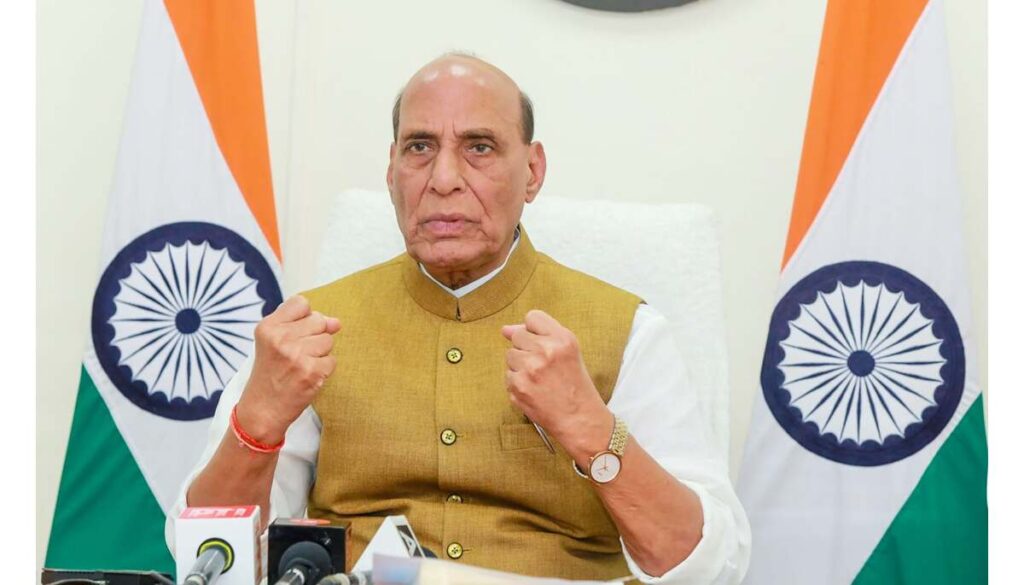
Elaborating on India’s proactive stance, Shri Jaiswal detailed the key tenets of Raksha Mantri Rajnath Singh’s address at the two-day meeting. The Defence Minister’s speech was a clarion call for united and decisive action against the scourge of terrorism.
Key highlights of his address included:
- A Call for Unity: He urged all SCO member states to “come together, unite to fight terrorism in all its forms and manifestations.”
- Accountability for Sponsors of Terror: Shri Singh emphatically reiterated the need to hold “the perpetrators, organizers, financiers, sponsors of reprehensible acts of terrorism, including cross-border terrorism… accountable and bring them to justice.” This was a clear and pointed reference to nations that use terrorism as an “instrument of policy.”
- No Double Standards: As per reports from the summit, the Defence Minister argued that there should be no place for double standards and that the SCO should not hesitate to criticize nations that provide shelter and support to terrorists.
- Strengthening Regional Stability: He urged all members to be in “lockstep in our endeavour in strengthening stability and security in our neighborhood.”
The failure to adopt a joint statement, far from being a diplomatic setback for India, is being framed as a principled victory. It demonstrates India’s growing confidence and willingness to lead the narrative on security issues, refusing to be a passive participant in multilateral forums.
‘Operation Sindhu’: A Resounding Success and a Testament to India’s Commitment to Its Citizens
A significant portion of the briefing was dedicated to the successful execution of ‘Operation Sindhu’, the large-scale evacuation mission launched on June 18th, 2025, to bring back Indian nationals from the conflict-ridden regions of Iran and Israel. The operation stands as a powerful example of India’s capacity and unwavering commitment to the safety and security of its diaspora.
India Asserts Global Leadership: The Monumental Scale of the Evacuation Mission
Shri Jaiswal provided detailed figures that underscore the mission’s complexity and success:
- From Iran: A total of 3,426 Indian nationals, 11 OCI cardholders, 9 Nepalese nationals, 4 Sri Lankan nationals, and one Iranian spouse of an Indian national were successfully evacuated. This was accomplished through 15 special flights.
- From Israel: A total of 818 Indian nationals were brought back home on four special flights.
The numbers reflect not only a commitment to its own citizens but also India’s role as a responsible leader in the South Asian region, extending assistance to nationals of neighbouring countries like Nepal and Sri Lanka.
India Asserts Global Leadership: Navigating Complex Geopolitical and Logistical Challenges
The success of Operation Sindhu was not merely a logistical feat but a major diplomatic triumph. Shri Jaiswal highlighted the intricate coordination required to carry out the evacuations amidst a volatile security situation.
- Cooperation with Iran: “We made a request and they opened their airspace for us to evacuate our nationals. We are grateful to the Government of Iran for this special gesture,” the spokesperson noted. This was a critical concession that enabled direct and swift evacuations.
- Multi-Country Coordination: For evacuations from Israel, where the airspace was closed, India worked closely with neighbouring countries. Indian nationals were moved across the border to Jordan and Egypt, from where they were flown back. Shri Jaiswal extended heartfelt thanks to the governments of Israel, Jordan, and Egypt for their crucial support.
- Hub-and-Spoke Model: Evacuation flights operated from multiple locations, including Mashhad in Iran, as well as Yerevan in Armenia and Ashgabat in Turkmenistan, demonstrating a flexible and effective operational strategy.
The MEA confirmed that with a final flight en route from Armenia, the evacuation of all those in Iran who wished to return would be complete. Regarding the continuation of the operation, Shri Jaiswal stated, “We are assessing the situation on the ground and based on that, we will take a decision.” This measured approach, combined with India’s welcome of the recent ceasefire, shows a policy that is both proactive in crisis and pragmatic in its follow-up.
India Asserts Global Leadership, Mending Fences: India and Canada Embark on a Calibrated Path to Diplomatic Normalcy
Relations with Canada, which have been strained for a considerable period, showed clear signs of a positive turn. The spokesperson provided an update on the constructive dialogue aimed at restoring stability and normalcy to the bilateral relationship.
India Asserts Global Leadership, The G7 Breakthrough: A Foundation for Renewed Engagement

The foundation for this thaw was laid during the meeting between Prime Minister Narendra Modi and Canadian Prime Minister Justin Carney on the sidelines of the G7 summit in Kananaskis, Alberta. Shri Jaiswal recalled the joint agreement from that meeting, emphasizing key commitments:
- Reaffirming the importance of India-Canada ties based on shared democratic values and respect for the rule of law.
- Upholding the principles of sovereignty and territorial integrity.
- Agreeing to take “calibrated and constructive steps to restore stability in the relationship.”
A crucial and concrete first step agreed upon was the “early return of High Commissioners to each other’s capitals.” The spokesperson confirmed that “Both sides are now working on this particular matter,” signaling that diplomatic channels are actively engaged in implementing this decision.
India Asserts Global Leadership: Addressing the Hardeep Singh Nijjar Case
Responding to a question about the ongoing court case in Canada regarding the murder of Hardeep Singh Nijjar and its potential to disrupt this positive momentum, Shri Jaiswal adopted a prudent and forward-looking stance. He acknowledged that the matter is currently under judicial process, stating, “It is a legal issue. As far as India-Canada relations is concerned… both sides underlined the need to pursue a constructive and balanced partnership.”
This response effectively decouples the legal proceedings from the broader strategic imperative to rebuild the relationship. India’s focus, as articulated by the MEA, is on the vast potential of the partnership, including cooperation in economic, trade, energy, mobility, and educational sectors.
India Asserts Global Leadership, The ‘Most Consequential Partnership’: India-US Ties Remain Deep and Robust
The briefing also reinforced the strength and depth of the India-US relationship, addressing specific queries on consular matters and regional strategic developments.
India Asserts Global Leadership: Navigating Visa Guidelines and Travel Advisories
On the issue of new US visa guidelines requiring social media details, the spokesperson reaffirmed a core principle: “all visa applications of Indian nationals should be treated on the basis of merit.” While acknowledging that visa and immigration are sovereign functions, he confirmed that India remains engaged with the US on all mobility issues to safeguard the legitimate interests of its citizens.
Regarding a recent update to the US travel advisory for India, Shri Jaiswal provided a crucial clarification to prevent misinterpretation. He confirmed that US authorities had informed India that there has been “no change in India’s advisory level, which remains at level 2, same as before.” This level has been consistent for several years, indicating that the recent update was routine and not a downgrade.
India Asserts Global Leadership: A Confident Partnership Amidst Regional Developments
When asked about the visit of a high-level Pakistani military official to the White House, the spokesperson responded with confidence, underscoring the independent and resilient nature of India-US ties. “Let me remind you that our partnership with United States is wide-ranging, grounded in shared democratic values and growing strategic convergence,” he asserted.
He described the Comprehensive Global Strategic Partnership between the two nations as one that “continues to receive high-level attention” and is manifested in sustained cooperation across all critical sectors. Concluding with a powerful affirmation, he said, “We remain confident in the trajectory of this most consequential partnership of the 21st century.” This statement positions India as a secure and indispensable partner to the US, unperturbed by Washington’s engagements with other regional actors.
India Asserts Global Leadership: Navigating Regional Complexities, Engagement with China, Bangladesh, and the Neighbourhood
The briefing provided significant insights into India’s management of its complex relationships with its neighbours, particularly China and Bangladesh.
India Asserts Global Leadership: Supply Chain Diplomacy and Economic Engagement with China
On the economic front, Shri Jaiswal confirmed that India is proactively engaging with China to resolve supply chain disruptions. Responding to a question about the curtailment of chemicals used in fertilizer manufacturing, he stated, “We are in touch with the Chinese side on several economic issues and trade issues.” Specifically on the critical issue of rare earth elements, he confirmed that talks are ongoing in both New Delhi and Beijing to “streamline the supply chain issue.” This reflects a pragmatic approach focused on securing India’s economic and industrial needs.
India Asserts Global Leadership: Upholding Principles of Fairness and Reciprocity with Bangladesh
Several questions focused on relations with Bangladesh, touching upon trade, river water sharing, and the security of the minority Hindu community.
- Trade Amendments: On recent trade-related measures, the spokesperson clarified that India’s actions were a response to long-pending issues and were “based on Bangladesh’s own quest for fairness, equal treatment, and reciprocity.”
- Ganges Water Treaty: With the treaty set to expire in 2026, Shri Jaiswal assured that India is prepared to engage with Bangladesh on all matters through established bilateral mechanisms like the Joint Rivers Commission, in an environment “conducive for mutually beneficial dialogue.”
- Security of Minorities: In a strongly-worded statement, the MEA expressed its dismay over the demolition of a Durga temple in Khilkhet, Dhaka. “We are dismayed that such incidents continue to recur in Bangladesh,” he said, adding pointedly, “Let me underline that it is the responsibility of the interim government of Bangladesh to protect Hindus, their properties, and religious institutions.” This firm statement underscores India’s commitment to the welfare of minority communities in its neighbourhood.
India Asserts Global Leadership: Balancing Positions within BRICS and SCO
A nuanced aspect of India’s multilateral diplomacy was highlighted in its differing approaches to statements from BRICS and the SCO. While India signed a BRICS joint statement that expressed “grave concern” over the military strikes on Iran, it refused to endorse the SCO statement. The spokesperson clarified that India’s own statements have consistently called for de-escalation, dialogue, and diplomacy. The distinction lies in the specifics: India’s refusal at the SCO was tied to the non-inclusion of its core concerns on terrorism, whereas the BRICS statement was a more general expression of concern on which members found common ground. This demonstrates India’s issue-based and interest-driven approach to multilateral engagements.
India Asserts Global Leadership: Highlights – June 2025
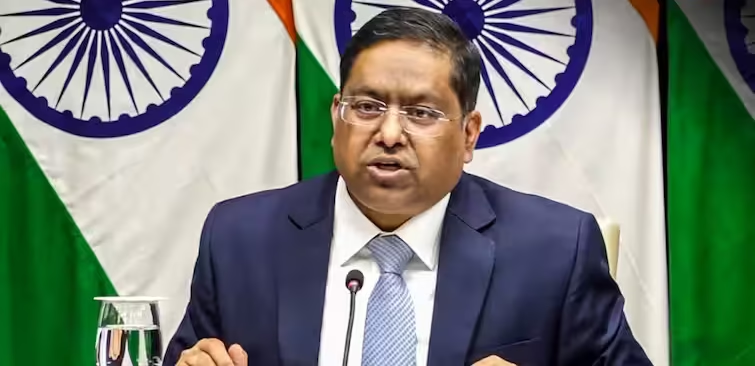
| India Asserts Global Leadership: Aspect | India Asserts Global Leadership: Details | India Asserts Global Leadership: Events |
|---|---|---|
| India Asserts Global Leadership: Key Event | MEA Weekly Briefing – June 26, 2025 | India MEA briefing June 2025 |
| India Asserts Global Leadership: SCO Summit Outcome | India blocked joint statement over soft language on terrorism | India SCO 2025, India stance on terrorism at SCO |
| India Asserts Global Leadership: Primary Reason for Disagreement | India’s insistence on strong anti-terror language; likely opposition from China | India China SCO rift, cross-border terrorism policy |
| India Asserts Global Leadership: Raksha Mantri’s SCO Address | Called for unity against terrorism, end to double standards, accountability for sponsors of terror | Rajnath Singh SCO speech 2025, India counterterrorism diplomacy |
| India Asserts Global Leadership: Operation Sindhu | Evacuation of 3,426 Indians from Iran, 818 from Israel; included OCI cardholders, Nepalese, Sri Lankans | Operation Sindhu India evacuation 2025, India rescue mission Iran |
| India Asserts Global Leadership: Logistics & Diplomacy | Airspace opened by Iran; evacuations via Jordan, Egypt, Armenia, Turkmenistan | India Iran coordination, India Israel conflict evacuation |
| India Asserts Global Leadership: India–Canada Relations | Renewed diplomatic dialogue post G7; working on return of High Commissioners | India Canada diplomatic reset 2025, PM Modi Justin Carney meeting |
| India Asserts Global Leadership: Nijjar Case Response | Legal matter; India focused on broader partnership | India Canada Nijjar case update, India Canada legal diplomacy |
| India Asserts Global Leadership: India–US Relations | Visa rules update discussed; no change in US travel advisory level for India | India US visa news 2025, India US travel advisory June 2025 |
| India Asserts Global Leadership: Pakistan-US Engagement | India unfazed; confident in its Comprehensive Global Strategic Partnership with the US | India Pakistan US triangle, India US strategic partnership 2025 |
| India Asserts Global Leadership: India–China Trade Talks | Supply chain discussions ongoing; fertilizer chemical export issue under negotiation | India China trade relations 2025, rare earth elements supply India |
| India Asserts Global Leadership: India–Bangladesh Issues | Trade imbalance, Ganges treaty extension, Durga temple demolition raised; demand for minority protection | India Bangladesh border issues, India Bangladesh minority rights |
| India Asserts Global Leadership: Multilateral Diplomacy Strategy | Differentiated stances at BRICS and SCO; consistent on anti-terrorism and de-escalation principles | India BRICS SCO 2025 position, India multilateral diplomacy stance |
| India Asserts Global Leadership: Upcoming Global Engagement | Prime Minister Modi to attend BRICS Summit in Brazil | BRICS Summit Brazil 2025, Modi global diplomacy schedule |
| India Asserts Global Leadership: Overarching Message | India asserts principled, agile, and strategic foreign policy – assertive on terrorism, compassionate on citizen safety, and firm on sovereignty | India foreign policy 2025 summary, MEA foreign affairs briefing |
India Asserts Global Leadership, Conclusion: An Era of Confident, Principled, and Agile Indian Diplomacy
The June 26, 2025, MEA briefing paints a picture of a nation that is clear in its priorities and confident in its capabilities. From the humanitarian triumph of Operation Sindhu to the principled stand at the SCO, and from the careful recalibration of ties with Canada to the steady reinforcement of its partnership with the United States, India’s foreign policy is being conducted with a blend of strength, compassion, and strategic foresight.
The engagements with China and Bangladesh further reveal a policy that is pragmatic on economic issues while remaining firm on matters of principle and national security. As India prepares for upcoming high-level visits, including the Prime Minister’s travel to Brazil for the BRICS summit, the world is watching a nation that is not just participating in global affairs, but actively and decisively shaping them.
Frequently Asked Questions (FAQs) on India Asserts Global Leadership:
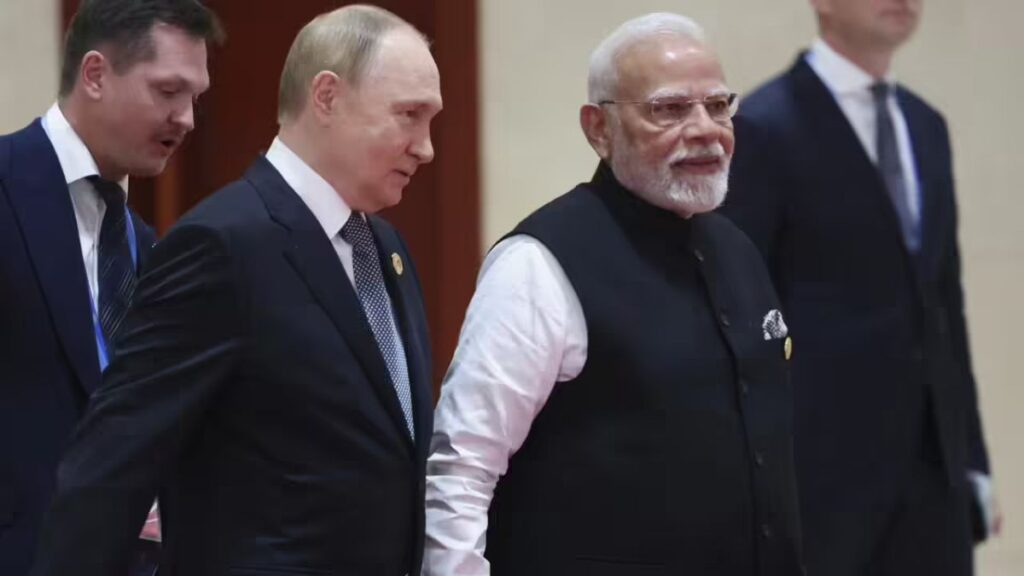
Q1. Why did India block the SCO joint statement in June 2025?
Answer:
India blocked the adoption of the SCO joint statement due to the absence of strong language condemning terrorism. The country insisted on including firm references to cross-border terrorism, which was opposed by at least one other member, likely China. This move reflects India’s uncompromising foreign policy stance on national security.
Q2. What is Operation Sindhu and why is it significant?
Answer:
Operation Sindhu is a large-scale evacuation mission launched by India in June 2025 to rescue Indian citizens and others from war-affected regions in Iran and Israel. The mission successfully evacuated over 4,200 individuals, showcasing India’s logistical strength and diplomatic coordination.
Q3. How did India coordinate international support for Operation Sindhu?
Answer:
India secured diplomatic support from multiple countries, including Iran (airspace access), Israel, Jordan, and Egypt, for safe evacuation routes. The operation involved special flights from Mashhad, Yerevan, and Ashgabat under a hub-and-spoke model to efficiently bring evacuees home.
Q4. What are the latest developments in India-Canada relations as of June 2025?
Answer:
India and Canada have agreed to recalibrate their diplomatic ties following a bilateral meeting between PM Narendra Modi and Canadian PM Justin Carney at the G7 Summit. Key outcomes include the planned return of High Commissioners and a shared commitment to constructive engagement.
Q5. What is India’s response to the Hardeep Singh Nijjar case in Canada?
Answer:
India has maintained that the Nijjar case is a legal matter currently under judicial process in Canada. The MEA emphasized that it should not derail broader diplomatic relations, which are being rebuilt through mutual trust and shared democratic values.
Q6. Has there been a change in the US travel advisory for India in 2025?
Answer:
No, according to the MEA, the U.S. travel advisory for India remains unchanged at Level 2. The advisory update was procedural and did not reflect any deterioration in security conditions. India continues to engage the U.S. on visa and mobility issues for Indian nationals.
Q7. What is India’s position on the BRICS vs SCO joint statements?
Answer:
India supported the BRICS joint statement expressing concern over military action in Iran but opposed the SCO joint statement due to inadequate reference to terrorism. This showcases India’s issue-based approach—supporting multilateralism only when aligned with its national interests.
Q8. How is India managing trade tensions with China in 2025?
Answer:
India is in active discussions with China to address disruptions in the supply chain, particularly concerning critical chemicals and rare earth materials. Talks are ongoing in New Delhi and Beijing, demonstrating India’s balanced economic diplomacy amidst broader geopolitical tensions.
Q9. What is India’s stance on minority rights in Bangladesh?
Answer:
India expressed strong concern over the recurring attacks on Hindu minorities in Bangladesh, including the demolition of a Durga temple in Dhaka. The MEA urged the Bangladeshi interim government to uphold the safety and dignity of its minority communities.
Q10. What are the highlights of Rajnath Singh’s address at the SCO Defence Ministers’ Meeting?
Answer:
Raksha Mantri Rajnath Singh called for unified action against terrorism, accountability for state sponsors of terror, and elimination of double standards within SCO. His speech reiterated India’s vision for regional peace and security.






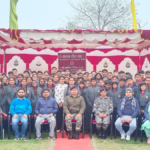
Leave a Reply